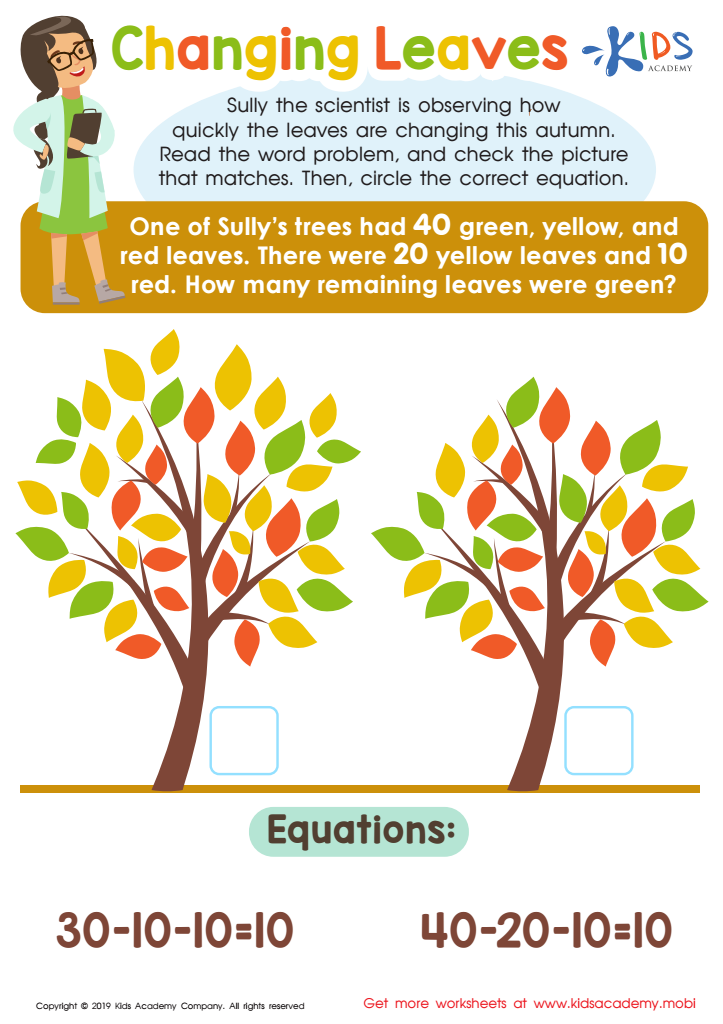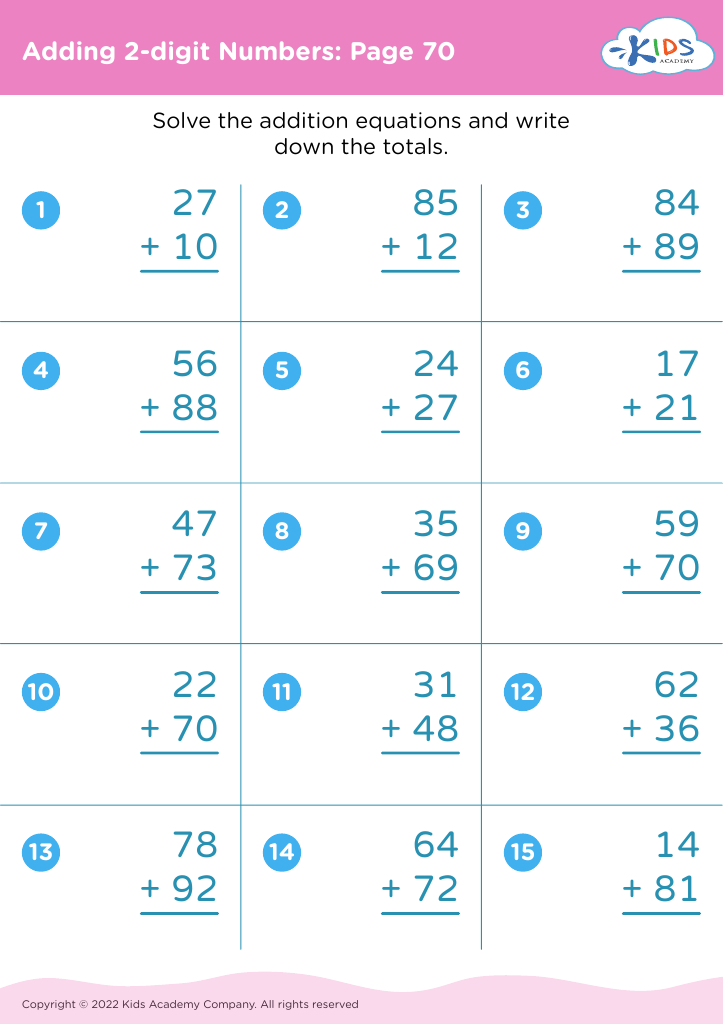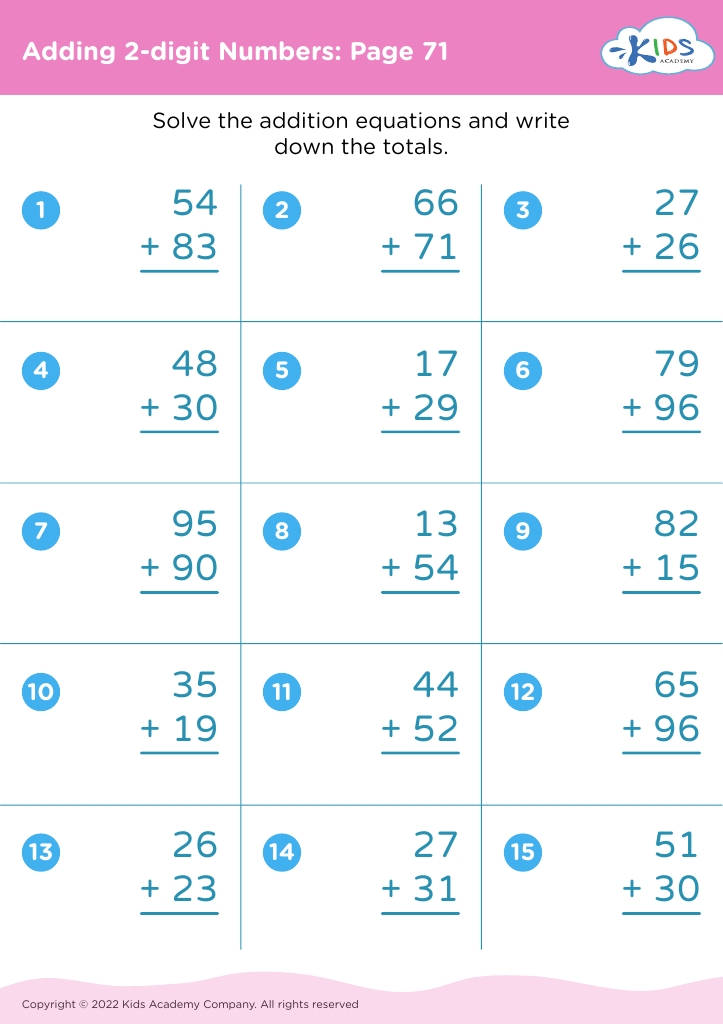Improving observation skills Addition & Subtraction Worksheets for Ages 3-8
3 filtered results
-
From - To
Enhance your child's mathematical and observational abilities with our Addition & Subtraction Worksheets for Ages 3-8. These carefully crafted worksheets not only focus on improving basic math skills but also sharpen observation skills through engaging and interactive exercises. Young learners will delight in spotting patterns, identifying differences, and solving fun math problems that keep them motivated and focused. Each worksheet is designed to blend learning with play, ensuring your child builds confidence while mastering fundamental concepts in addition and subtraction. Ideal for preschool to early elementary students, these worksheets support cognitive development and set a strong foundation for future learning.


Changing Leaves Worksheet
Improving observation skills in addition and subtraction for children ages 3 to 8 is vital for nurturing foundational mathematical abilities. Parents and teachers should focus on these areas because early childhood is a critical period where young minds develop problem-solving skills that influence future academic success. Developing strong observation skills fosters attention to detail, encourages logical thinking, and improves the child's ability to identify patterns and relationships in numbers.
For instance, when children practice adding or subtracting objects they can see and manipulate, they begin to understand abstract concepts more concretely. By observing and interacting with physical items, such as toys or counters, they learn to count accurately and gain a sense of quantity and numerical relationships. These hands-on experiences make learning more engaging and memorable, which boosts their confidence and interest in mathematics.
Moreover, well-honed observation skills enable children to spot and correct their mistakes, promoting a growth mindset. It creates a solid foundation for more complex math skills by ensuring they have a clear understanding of basic concepts. By investing time and energy into enhancing these skills, parents and teachers can set children on a path to academic achievement and a lifelong appreciation for math. This developmental support helps them not only to excel academically but also to acquire essential life skills in critical thinking and problem-solving.



 Assign to My Students
Assign to My Students
















